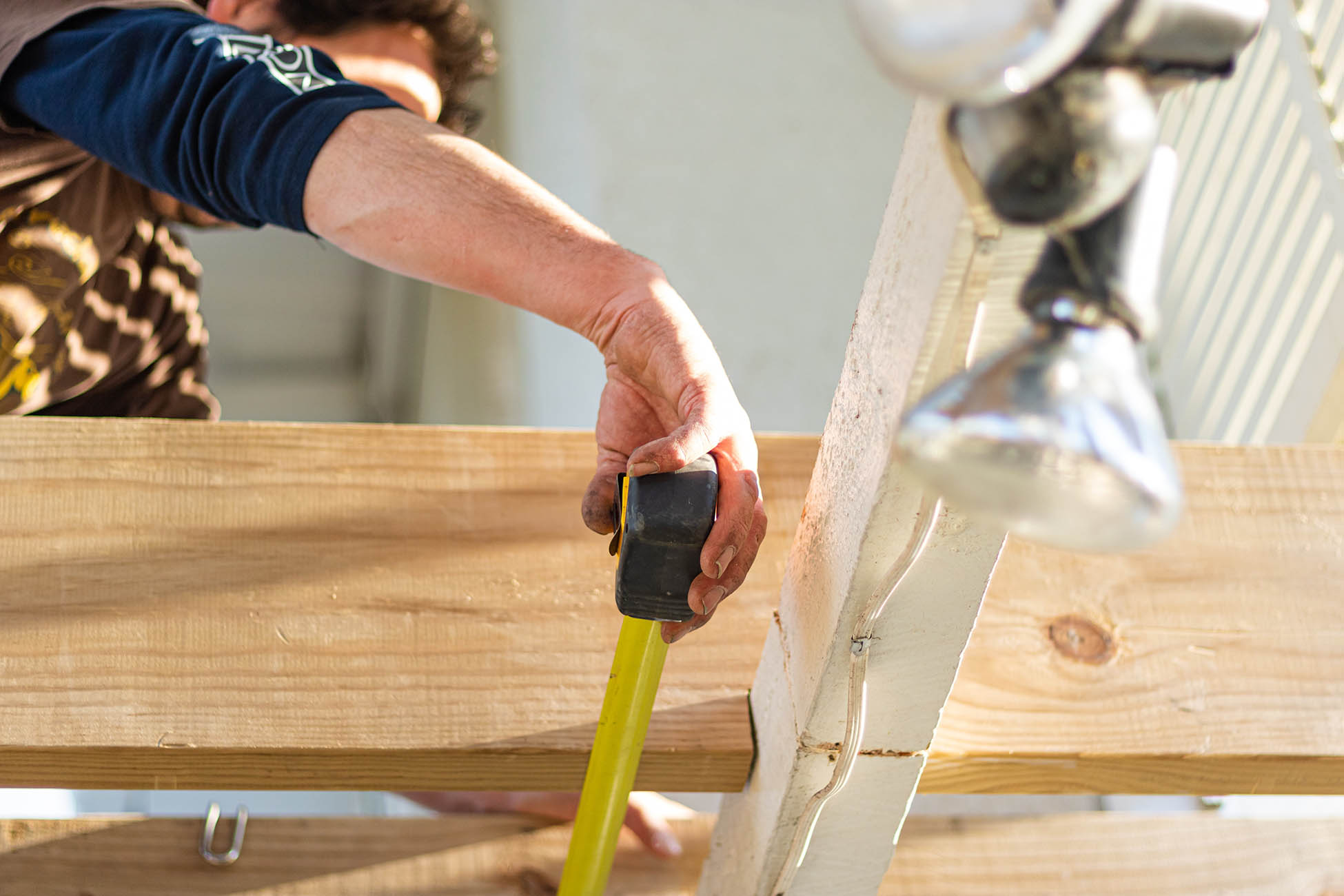If you are in the market for a construction loan, it is important to understand what the requirements are. This will help you determine if you are eligible for a loan and what you need to do in order to secure one. In this blog post, we will discuss the basic requirements for a construction loan. We will also provide some tips on how to increase your chances of being approved. So, let's get started!
What Are the Requirements for a Construction Loan Table of Contents
What Are the Requirements for a Construction Loan Table of Contents
What Are the Requirements for a Construction Loan?
How to Increase My Chances of Getting Approved For a Construction Loan?
What Are Some Alternatives to a Construction Loan?
Can I Turn a Construction Loan to a Permanent Loan?
How Does a Construction Loan Work When You Own the Land?
What is a Renovation Construction Loan?
What Are The Different Types of Renovation Construction Loans?
What Are The Commercial Construction Loan Requirements?
What Are The Different Types of Commercial Construction Loans?
Which Commercial Construction Loan is Right for Me?
Can I Get a Construction Loan With No Money Down?
Do I Need Collateral for a Construction Loan?
What Is the Interest Rate on a Construction Loan?
Are There Any Other Fees Associated With a Construction Loan?
What Are the Requirements for a Construction Loan Table of Contents
What Are the Requirements for a Construction Loan?
How to Increase My Chances of Getting Approved For a Construction Loan?
What Are Some Alternatives to a Construction Loan?
Can I Turn a Construction Loan to a Permanent Loan?
How Does a Construction Loan Work When You Own the Land?
What is a Renovation Construction Loan?
What Are The Different Types of Renovation Construction Loans?
What Are The Commercial Construction Loan Requirements?
What Are The Different Types of Commercial Construction Loans?
Which Commercial Construction Loan is Right for Me?
Can I Get a Construction Loan With No Money Down?
Do I Need Collateral for a Construction Loan?
What Is the Interest Rate on a Construction Loan?
Are There Any Other Fees Associated With a Construction Loan?
What is a Construction Loan?
A construction loan is a short-term loan used to finance the construction of a new home or other real estate project. Construction loans are typically issued by banks or other financial institutions and are secured by the property being built. The loan period is usually 12 months or less, with the borrower making interest-only payments during that time. At the end of the loan period, the borrower must either repay the loan in full or convert it to a permanent mortgage on the property.
What Are the Requirements for a Construction Loan?
In order to qualify for a construction loan, you will need to meet certain requirements set forth by your lender. These may include:
A Minimum Credit Score
Most lenders require borrowers to have a credit score of 680 or higher in order to qualify for a construction loan. If your credit score is lower than this, you may still be able to qualify if you have a strong history of on-time payments and a low debt-to-income ratio.
A Down Payment
Construction loans typically require a down payment of 20% or more. This means that if you are borrowing $250,000 to finance your new home, you will need to come up with at least $50,000 of your own money. Some lenders may allow for a smaller down payment, but you will likely pay a higher interest rate as a result.
Income Verification
In order to qualify for a construction loan, most lenders will require that you provide proof of income. This may include tax returns, pay stubs, or other documentation.
A Home Appraisal
Before approving your loan, the lender will likely require an appraisal of the property you are planning to build. This is to ensure that the value of the property is sufficient to cover the loan amount.
If you meet all of these requirements, you should have no problem securing a construction loan from a bank or other financial institution. However, there are a few things you can do to increase your chances of being approved.
How to Increase My Chances of Getting Approved For a Construction Loan?
There are a few key requirements you can focus on to help increase your chances of being approved for a construction loan. First, it's important to have a strong credit score. Lenders will be looking at your credit history to determine whether or not you're a good candidate for a loan.
If you have a history of late payments or high balances, this could work against you. Another important factor is your income. Lenders will want to see that you have a steady source of income and that you're able to make the payments on the loan.
Finally, the value of the property you're looking to finance will also be taken into consideration. The lender will want to make sure that the property is worth what you're borrowing and that they'll be able to recoup their investment if you default on the loan.
If you're looking to get approved for a construction loan, focus on these key requirements and you'll increase your chances of being approved. With a strong credit score, steady income, and a property that meets the lender's standards, you'll be in good shape to get the construction loan you need.
What Are Some Alternatives to a Construction Loan?
If you're not able to meet the requirements for a construction loan, there are some alternative options available. One option is to get a personal loan from a bank or other financial institution.
Personal loans can be used for any purpose, including financing a home construction project. However, they typically have higher interest rates than construction loans and may require collateral, such as your home or car.
Another option is to finance your home construction project with credit cards. This can be a good option if you have good credit and can qualify for a 0% APR introductory offer. However, it's important to be aware of the potential risks associated with using credit cards to finance your project.
If you're not able to qualify for a construction loan or don't want to take on the risks associated with alternative financing options, you may be able to get a home equity loan or line of credit.
Home equity loans and lines of credit are based on the value of your home and can be used for any purpose. However, they typically have lower interest rates than personal loans and credit cards.
If you're looking to finance your home construction project, there are a variety of options available.
Can I Turn a Construction Loan to a Permanent Loan?
The answer to this question depends on your lender, but typically, the answer is yes. Once your home is complete and you have signed all the necessary paperwork, your construction loan can be turned into what is called a “permanent” mortgage. This means that you will now have a fixed interest rate and monthly payments for the life of your loan.
Construction loans are typically short-term loans that last for 12 months or less. Once the construction of your home is complete, you will then need to apply for a permanent loan.
A permanent loan is a long-term mortgage that can have either a fixed or adjustable interest rate. The repayment term on a permanent loan is usually 15 years or more.
If you're not able to qualify for a construction loan, there are some alternative options available. One option is to get a personal loan from a bank or other financial institution.
Another option is to find a private lender who is willing to finance your construction project.
How Does a Construction Loan Work When You Own the Land?
If you own the land where the home will be built, you can use it as equity for the construction loan. The value of the land will be determined by an appraiser and that value can be used as your down payment. If there is already a structure on the land, it may need to be removed before construction can begin. Check with your lender to see what their requirements are for existing structures on a construction loan.
Construction loans are different from other types of loans because they're not guaranteed by Mortgage Insurance Companies (MICs). This means that if you default on the loan, the bank is at risk of losing money. As a result, banks tend to be more selective about who they approve for a construction loan.
What is a Renovation Construction Loan?
A renovation construction loan is a loan that finances both the purchase price of the property and the cost of renovations. This type of loan is perfect for buyers who are looking at fixer-upper homes. The amount that you can borrow will be based on the value of the home after repairs are completed.
Just like with a regular construction loan, you'll need to go through an approval process and provide detailed plans for the renovations. Once approved, you'll get a lump sum of money that you'll use to pay your contractor as work is completed.
What Are The Different Types of Renovation Construction Loans?
There are two types of renovation construction loans: FHA 203(k) and HomeStyle Renovation. The loan that's right for you will depend on the extent of the renovations you're planning to do, as well as the value and condition of the property.
FHA 203(k)
If you're making major repairs or structural changes to your home, then you'll need an FHA 203(k) loan. This type of loan allows you to finance up to 110% of the home's post-renovation value. You'll also need to get approval from a HUD consultant, who will inspect the property and make sure that all work is up to code.
HomeStyle Renovation
If you're making less extensive repairs, then you may be able to qualify for a HomeStyle Renovation loan. With this type of loan, you can finance up to 95% of the home's post-renovation value. There's also no need to get approval from a HUD consultant - making it a simpler process overall.
Which Renovation Loan is Right for Me?
The answer to this question depends on a few factors:
- The extent of the renovations you're planning to do: If you're planning major repairs or structural changes, then you'll need an FHA 203(k) loan. If you're making less extensive repairs, then a HomeStyle Renovation loan may be right for you.
- The value and condition of the property: The maximum loan amount for an FHA 203(k) loan is based on the lesser of the home's as-is value or its post-renovation value. The maximum loan amount for a HomeStyle Renovation loan is based on the as-is value of the property.
- Your credit score and debt-to-income ratio: You'll need to have good credit and a strong financial profile to qualify for either type of loan.
What Are The Commercial Construction Loan Requirements?
Commercial construction loans are typically used to finance the construction of office buildings, retail centers, and other types of commercial property. These loans are usually short-term, with a repayment period of one to three years.
To qualify for a commercial construction loan, you'll need to have good credit and a strong financial profile. You'll also need to provide detailed plans and specifications for the project. Once approved, you'll get a lump sum of money that you'll use to pay your contractor as work is completed.
What Are The Different Types of Commercial Construction Loans?
There are two types of commercial construction loans: traditional bank loans and SBA 504 loans. The loan that's right for you will depend on the size and scope of the project, as well as your financial profile.
Traditional Bank Loans
Traditional bank loans are typically used for smaller projects, such as office renovations or retail center expansions. These loans are usually short-term, with a repayment period of one to three years. To qualify, you'll need good credit and a strong financial profile.
SBA 504 Loans
SBA 504 loans are typically used for larger projects, such as new construction or major renovations. These loans have a longer repayment period of up to 25 years. To qualify, you'll need to have good credit and a strong financial profile. You'll also need to provide detailed plans and specifications for the project.
Which Commercial Construction Loan is Right for Me?
The answer to this question depends on a few factors:
The Size and Scope of the Project
If you're planning a small-scale renovation, then a traditional bank loan may be right for you. If you're planning a large-scale new construction project, then an SBA 504 loan may be right for you.
Your Financial Profile
You'll need good credit and a strong financial profile to qualify for either type of loan.
The Repayment Period
Traditional bank loans have a shorter repayment period of one to three years. SBA 504 loans have a longer repayment period of up to 25 years.
Can I Get a Construction Loan With No Money Down?
Construction loans can be a great option if you're looking to build your dream home but don't have the upfront cash to do so. But what are the requirements for a construction loan? In this article, we'll break down everything you need to know about getting a construction loan with no money down.
The first thing you'll need is a detailed construction plan. This will include drawings and specs from an architect or engineer that detail what you're planning to build. You'll also need to provide a timeline for the project, as well as an estimate of the total cost. Lenders will want to see that you have a clear plan in place before they give you any money.
Next, you'll need to find a lender who is willing to give you a construction loan. Not all lenders offer these loans, so it's important to shop around and compare rates. Once you've found a lender, you'll need to fill out an application and provide any supporting documentation.
Once your loan is approved, the lender will release the funds to you in stages as the project progresses. This process is known as draw funding, and it helps protect the lender in case something goes wrong with the project.
If you're thinking of getting a construction loan, make sure you understand all of the requirements first. With a little preparation, you can be on your way to building your dream home in no time!
Do I Need Collateral for a Construction Loan?
Construction loans are typically unsecured, which means they don't require any collateral. However, some lenders may require you to provide some form of collateral, such as a down payment or equity in another property. Be sure to ask your lender what their specific requirements are before you apply for a loan.
What Is the Interest Rate on a Construction Loan?
The interest rate on a construction loan can vary depending on the lender and the market conditions at the time you apply for the loan. It's important to compare rates from multiple lenders before you choose one, so that you can get the best deal possible.
Are There Any Other Fees Associated With a Construction Loan?
In addition to interest, you may also have to pay origination fees, closing costs, and other miscellaneous fees associated with your loan. Be sure to ask your lender what all of the fees will be before you agree to a loan.
Getting a construction loan can be a great way to finance your dream home. Just make sure you understand all of the requirements and fees beforehand so that there are no surprises down the road. With a little planning, you can be on your way to building your new home in no time!













